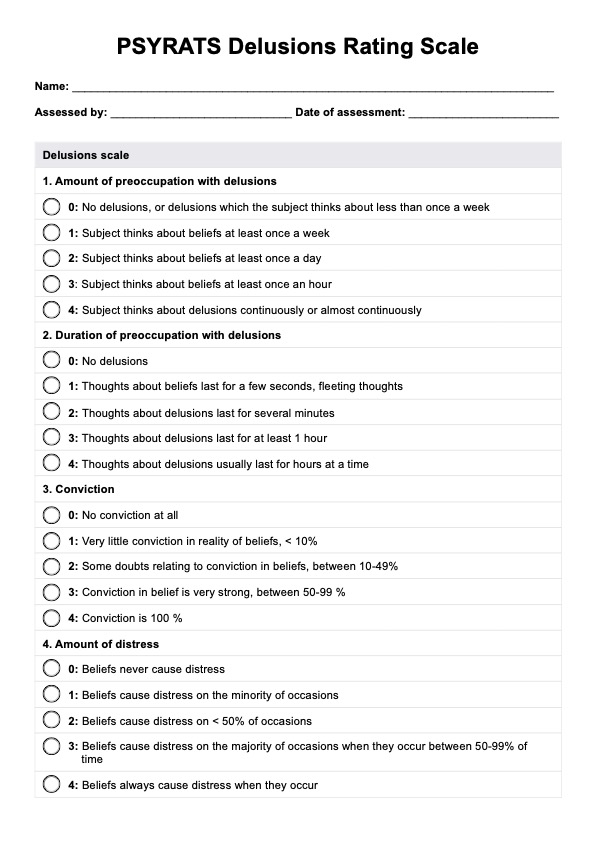PSYRATS stands for the Psychotic Symptom Rating Scales, a set of tools used to assess the severity of psychotic symptoms, including delusions and auditory hallucinations. It is widely utilized in clinical and research settings for its multidimensional approach to measuring symptom characteristics.

PSYRATS Delusions Rating Scale
Monitor changes and measure symptoms dimensions of delusions with our free and easy-to-use PSYRATS Delusions Rating Scale. Try it today.
PSYRATS Delusions Rating Scale Template
Commonly asked questions
The Positive and Negative Syndrome Scale (PANSS) is a broader tool used to assess a wide range of symptoms in schizophrenia, including positive, negative, and general psychopathology symptoms. In contrast, Psychotic Symptom Rating Scales (PSYRATS) focuses specifically on the multidimensional characteristics of psychotic symptoms like delusions and hallucinations, offering a more detailed symptom-specific assessment.
The best medication for auditory hallucinations typically involves antipsychotic medications, such as risperidone, olanzapine, or aripiprazole. The choice of medication depends on individual needs, symptom severity, and tolerance and should be determined by a qualified psychiatrist after a thorough evaluation.
EHR and practice management software
Get started for free
*No credit card required
Free
$0/usd
Unlimited clients
Telehealth
1GB of storage
Client portal text
Automated billing and online payments











